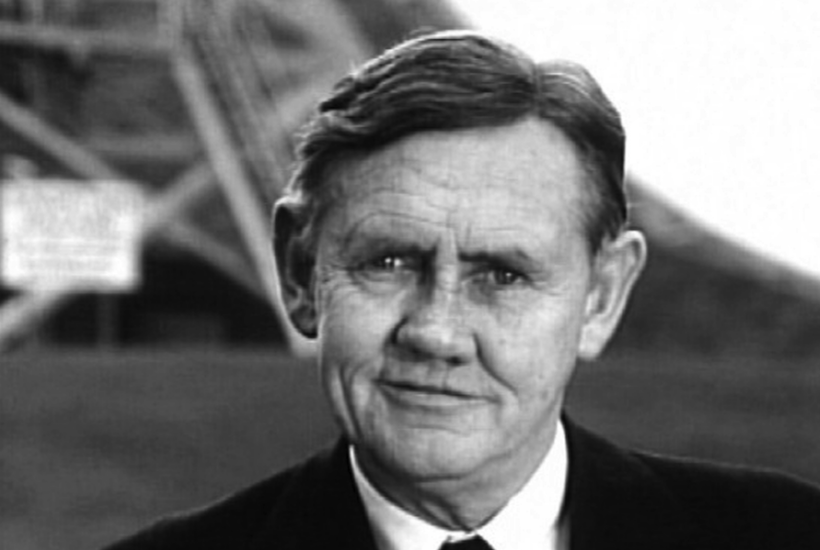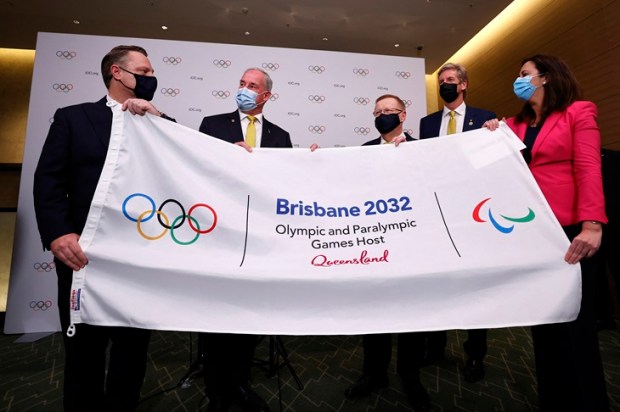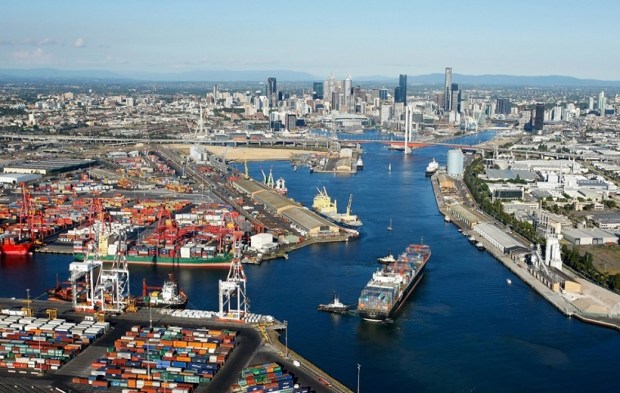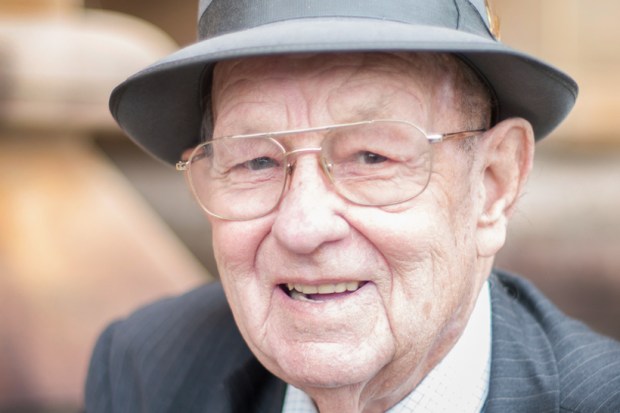Following the death of Sir John Gorton on 19 May 2002, Christopher Zinn wrote in the Guardian that “Gorton left public life to become the most forgotten and unappreciated Australian leader”. Half a century after he assumed office as Australia’s nineteenth Prime Minister this week in 1968, it is timely to remember the ideals and legacy of that larrikin, craggy-faced World War II fighter-pilot who occupied Australia’s highest office at a critical juncture in the nation’s history. In the late 1960s, Australia was not only becoming more enmeshed in the Vietnam War but at home was grappling with its emerging sense of cultural identity. After the tragic disappearance of Harold Holt the previous December, it found a leader who projected a “down to earth” persona with a robust Australian nationalism.
Born on 9 September 1911, John Grey Gorton was the son of a Manchester-born orchardist and his mistress. With his mother dying from influenza, however, he was raised by his father’s estranged wife in Sydney. While born into a privileged background with an education at Shore, Geelong Grammar and Oxford, the young Gorton knew personal hardship from an early age and this gifted him with not only a compassion for the disadvantaged but the common touch to relate to everyday Australians.
With a promised job in journalism eluding the Oxford graduate in history, Gorton worked as an orchardist in rural Victoria before enlisting in the Royal Australian Airforce in 1940. A gallant combatant, Gorton piloted a Hawker Hurricane that crash-landed just off the coast of Singapore. Only weeks after surviving this accident with severe lacerations, the RAF pilot ended up in shark infested waters on a crowded life-raft after his rescue ship was torpedoed. After surviving two more air mishaps during the War, Gorton was decorated for his service and bravery.
Entering politics after the war, Gorton was elected as a Liberal Party senator in 1949 and became a minister in 1958. Serving as Minister for the Navy, Minister for Works, Minister for the Interior and Minister for Education before eventually reaching the prime ministership, Gorton was touted as future leadership material for both his energy and capability.
It was the flame of idealism that he brought to the not infrequently bland pragmatism of Australian politics, however, for which his public contribution should be most honoured. Since his political conscience was awakened in the immediate aftermath of the War, he had a clear vision of the country that Australia could be and ought to be. In what ranks as one of the great speeches in Australian political history, his Mystic Park Address of 1946, he told an audience of returned servicemen that “in the peace, we must make our advances”. For Gorton, this meant “removing from the minds of men the fear of poverty”. It was also about “turning our schools into institutions which will produce young men and women avid for further education” and “raising the spiritual standard of living so that we may get a spirit of service to the community and live together without hate”. In peacetime, Australia needed to take its “place in the world, not as a self-sufficient, sealed-off unit, but as a member of a family”.
True to Robert Menzies’ founding philosophy of Liberalism, Gorton rejected the socialist pathway for post-war Australia by affirming that “The individual does not exist to serve the State but the State exists to serve the individual”. By harnessing the Liberal values of individual initiative and free enterprise, Australia, in his words, would “become the Queen Continent of this Hemisphere” and “be a shining example of people who came to a harsh country and by effort conquered it”.
Unexpectedly for a Liberal leader, Gorton as Prime Minister made his mark most on the arts. Continuing the legacy of his predecessor Holt, Gorton was eager to see Australia nurture its own artistic culture as it emerged from the shadows of the British Empire. In 1969 he expanded the Australian Council for the Arts to embrace film production. Reflecting on the new initiative, he remarked that, “We can show the rest of the world what Australia is, how its people live, and impress on them that there are other things than avant-garde kangaroos or Ned Kelly’s in this great country of ours”. In addition to nourishing the arts, his government boosted education spending by 25%.
On the issue of race and immigration, Gorton’s approach proved measured and balanced. He rejected the old White Australia policy as illiberal and discriminatory but was awake to the dangers of a future immigration policy likely to ghettoise Australia into a nation of tribes. As early as 1959, he told parliament that “there are many people of the countries to our north who are making eminently good Australian citizens” but warned also that “nothing would be more calculated to inculcate a colour consciousness than for there to be people of other nationalities living in little groups on their own”. As a non-racist Australian nationalist, Gorton desired people of all racial backgrounds to feel equally part of the national fold and not separate from it. In a sense, he prefigured John Howard’s vision of an Australia drawn from the four corners of the earth yet united by a common set of Australian values.
Similarly, with the nation’s first Australians, Gorton favoured an integrating yet non-paternalist approach to advancing indigenous welfare. The Prime Minister told a conference of Ministers for Aboriginal affairs in 1968 that “Without destroying Aboriginal culture, we want to help our Aboriginals to become an integral part of the rest of the Australian people, and we want the Aboriginals themselves to have a voice in the pace at which this process occurs”.
Compared to either his predecessor, Robert Menzies, or his successor, John Howard, however, his policy achievements in office were fairly modest with no significant economic reforms or foreign policy breakthroughs. As Ian Hancock noted in his splendid biography of Gorton; “He had clear values and strong positions, but no program. He wanted to make a better world, yet lacked some of the personal and institutional resources needed to implement his objectives”. To be fair, Gorton’s term in office of 38 months was relatively brief and his prime ministership was frequently beset by internal party wrangling. Yet notwithstanding, he was a remarkable Australian leader whose character was fortified by a turbulent life and whose burning idealism was forged in the crucible of War and Depression.
David Furse-Roberts is a Research Fellow at the Menzies Research Centre and is editing a volume of speeches by former Prime Minister John Howard to be released in early 2018.
Got something to add? Join the discussion and comment below.
Got something to add? Join the discussion and comment below.
Get 10 issues for just $10
Subscribe to The Spectator Australia today for the next 10 magazine issues, plus full online access, for just $10.


























Comments
Don't miss out
Join the conversation with other Spectator Australia readers. Subscribe to leave a comment.
SUBSCRIBEAlready a subscriber? Log in